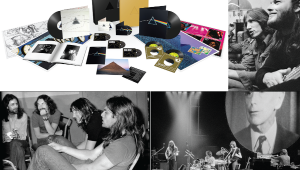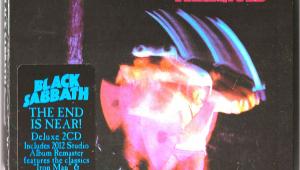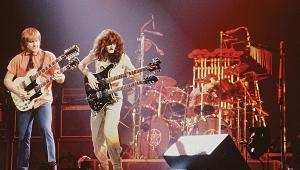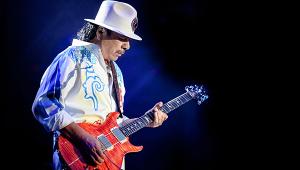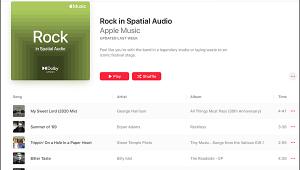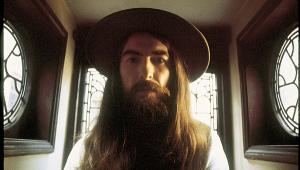I Love Santana! Waiting to listen to his new album - Blessings and Miracles.
Carlos Santana on Blessings, Miracles, and Full Musical Immersion Page 2

Santana: Totally, absolutely! [Santana had one of the most memorable debuts at Woodstock on August 16, 1969, with a career-making set that included songs like "Evil Ways," "Jingo," and "Soul Sacrifice."]

Mettler: Yeah. Yeah. Well, we need you to keep the Woodstock flame going. On a different note, I love the fact that you and [vocalist] Rob Thomas have a special connection I think people probably didn't expect, but it makes a lot of sense. Tell me about working with Rob on "Move" from the new album, and then we'll get to "Smooth."
Santana: Well, Rob and this group of fellas [American Authors] were sculpturing this song, and then they call me and go, "Hey, we've got this song, and we want to put your guitar in it." And once I did, they liked it so much. And then I said, "Hey, what album is this going on?" And Rob, he said, "Well, it's not going on my album." And I said, "Well, can I have it? Can it go on my album?" And he and they were like, "Yeah!"
So everything's just—it's wonderful to accept that the universe already has something for you, up ahead. There's a group of people orchestrating and sculpturing something for you. All you have to do is show up, be present and lucid, and be grateful. And then here comes this wonderful song like "Smooth"—and now we also have "Move." These songs, they touch a lot of people's hearts.
Mettler: Oh yeah. And speaking of "Smooth," it recently celebrated its 20th anniversary in 2019. ["Smooth" is the ubiquitous blockbuster No. 1 single from the aforementioned 1999 Santana release, Supernatural.] It doesn't really feel like that much time has gone by—it feels timeless, to me.
Santana: Yes! That's the key to great art, whether it's Picasso, Stravinsky, or Miles Davis—the key is, if you want to stick around like Billie Holiday, you gotta make music that's not "mental." It's light, and it touches the spirit and the soul. That's the frequency.

[MM adds: I asked Rob Thomas directly about his clear connection with Santana and the ongoing impact of "Smooth" 20-plus years later, and he told me, "When you and I were growing up listening to Carlos' music, it was always Carlos with a rock singer, you know? It was never like the smooth kind of Latin singer. That's what made this kind of collaboration come together. That's why it worked with me and Carlos, because I didn't have to pretend to be Rico Suave! (Thomas laughs) And with 'Smooth' having that special kind of radio-fuzz quality to its production—it's those little moments that added to it being so special. But maybe the best thing to come out of it all is I continue to have an amazing relationship with Carlos."]
Mettler: Yeah, I agree with that. It's also interesting when you now listen to "Peace Power," a Blessings song sung by Living Colour vocalist Corey Glover. Some of the messaging in that song seems as relevant to the actual moment you and I are talking in right now than when you committed it to the record when it first came out back in October [2021]. Do you feel "Peace Power" has extra importance, if that is the right word to say, for how we feel right now?
Santana: Yeah, I've been feeling like this was for The Black Panthers, and we even play a free concert for The Black Panthers. This movement has been going on for a long time with Marcus Garvey, Malcolm X, Pancho Villa, and [Emiliano] Zapata. There's always a need for revolutionary human beings. It doesn't have to be violent, but revolution always brings something new, because you're liberating an energy so we can have three things that are really important to all human beings—equality, fairness, and justice.
Mettler: I feel like it's fair to say there's abject power in a song like "America for Sale," where you and [Metallica guitarist] Kirk Hammett get into this amazing guitar duel. Can you tell me about the way you two guys interacted on that song? I couldn't stop myself from playing it over and over.
Santana: I feel so grateful to Kirk. This is the second or third time he made himself available to co-create with me in the sculpture of sound.
[MM adds: Hammett also played guitar with Santana and Robert Randolph on "Trinity," a tribute to Nusrat Fateh Ali Khan that appears on Santana's November 2005 album, All That I Am.]
Santana: I asked him, "Kirk, I don't think Steven Tyler or Lenny Kravitz can do it. Do you know anybody who can sing that song? I'm looking for that high-pitch thing, like yeoww! (Carlos does a quick high-pitch scream)—like the way Stevie does." And Kirk goes, "I know exactly the guy. He's a good friend of mine, and his name is Marc Osegueda, from Death Angel [a thrash metal band]." And I said, "Oh? Cool!" And so it just worked out, you know? It just aligned itself.
Mettler: So, you captured the perfect energy there. I would also say that in "Joy," you and Chris Stapleton have another kind of magical collaboration. It's in its own universe, in a way.
Santana: Yeah. It's a long story, but I'll make it concise. When I finally connected with my brother Chris, he says, "Carlos, what kind of music do you want to do? What is it you want to do?" So I took a deep breath, slowed it down, and I said, "Mystical medicine music to heal a twisted, crooked world infected with fear, darkness, and ignorance."
And he goes, "Oh! Ok!" (chuckles) When Chris called me back, he had this country song with reggae and gospel in it, and the lyrics are beautiful.
Mettler: Yeah. It really is a beautiful song. I think the phrase we have to use is you are creating nondenominational music. You cannot be put into a characterized box.
Santana: I love that! Yeah, that sounds great.
Mettler: That's what we're officially calling it now, then. (chuckles) I love the story I heard about "A Whiter Shade of Pale," which we only briefly touched on earlier, because you had a vision about working with Steve Winwood on that one, right?
Santana: Yeah. I had that vision about it three to six months before I presented it to him. We were at Hyde Park [as performing guests of headliner Eric Clapton in London on July 8, 2018], where we were listening to someone. I think it was Gary Clark Jr. onstage. And because there was no Corona yet, I felt really comfortable getting really close to Stevie Winwood's ear. I said, "Hey Stevie, I hear you singing 'A Whiter Shade of Pale,' but I'd like to do it more African, Cuban, Puerto Rican, Guajira style—very sexy."
And then, he wouldn't look at me. (MM laughs) He just wouldn't look at me! He kept looking ahead like I was some kind of crazy guy, you know? After about 20 seconds, all of a sudden he turned around and looked at me right in the eye, and he goes (Carlos shifts to a raspier British-inflected voice), "I can hear it! Carlos, I hear it! I get what you're saying." So we called out to [producer] Narada Michael Walden, and we put it all together.
Mettler: Yeah. Narada [pronounced "Narda"] is a wonderful choice for that one. And I think it's fair to say there are few artists who seem to connect with so many other artists in any genre across the entire globe like you do. What is the secret to you connecting with people like that?
Santana: You've gotta feel oneness. First, you have to accept your totality—your being multidimensional, interdenominational, poly-anything you want to be. When people ask me, "What's your sign?" I go, "Beg your pardon?" And they go, "You know—your sign, like astrology." And I go, "Oh, all of them—and none of them." They go (pauses), "Ohh." I'm not stuck with a certain—I'm not going to let something on a piece of paper tell me what kind of day I'm going to have.
Mettler: Yeah, your sign is the universal sign, is what I would say. You can't even name it.
Santana: Well, yeah. And like you, I think if we just take a deep breath and you slow it down, then you feel your light, your spirit, and your soul—and you're in. That's a code for accessing the keys to the kingdom. You have access to it. It's not for certain people—it's for everybody.
Mettler: Last thing. I'm going to project ourselves 50 years into the future. It's 2072. And unless science has done something about it, probably neither you nor I will be physically on the Earth at that moment. You never know. But in 2072, when someone sees the name Carlos Santana and wants to listen to his music, what do you think they'll say about it, 50 years from now?
Santana: This is—Santana is a multi-dimensional Mexican who was able to show up, and bring it all with him.
- Log in or register to post comments

Carlos you would be a nice addition

Great Article. Have the album on my phone. It's another great album by Santana

...he is a damn fine guitarist.
He, over the years has made truly imbecilic statements like, "Music changes your molecules." Nothing could be further from the truth, but, hey, it can make you feel good.
And, we both, like Eddie Van Halen, think Allan Holdsworth was the greatest guitarist ever so we have that in common (Carlos stated that "if you try to play his music, it will fry your brain.").

An online mapping tool called driving directions makes it easy for users to travel the world. With the help of this navigation service, you can easily and precisely get from point A to point B, changing the way you travel. Driving-Directions.io is a reliable journey partner that you can rely on in this world of endless possibilities. With the help of the turn-by-turn directions, multi-stop planning, real-time traffic updates, and other navigation features, you can navigate the maze of roads with ease!

"Football and casino games have always been two of my passions, and finding a game like pin up Aviator was a great surprise. It’s a game that combines excitement with strategy, and every round is unique. Additionally, its design and mechanics make it super entertaining. For those looking for a different and captivating game, I totally recommend it. If you want to explore more, check it out at pin up aviator game, where there’s always something new to discover and enjoy. "

